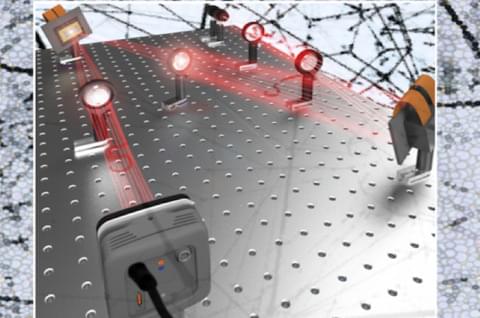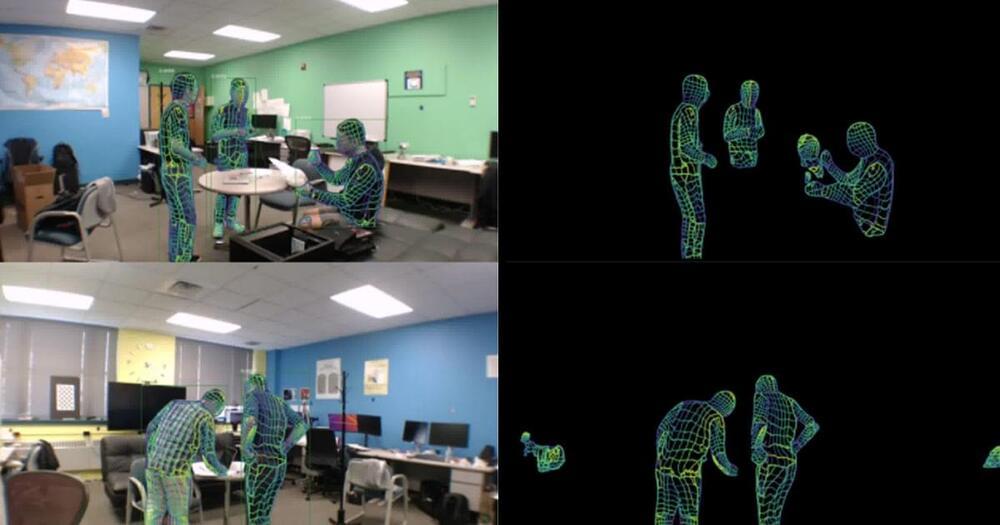Will the AI chatbots eat Google’s lunch?


Opera announced a new feature that will be added to its browser’s sidebar. Called ‘shorten’, the tool is a ChatGPT-powered tool that can be used to generate summaries of webpages and articles. The blog also displays a short demo video that gives us a glimpse of how ChatGPT will be integrated in the browser.
Song Lin, Co-CEO of Opera, said in the blog post, “In more than 25 years of our company’s history, we have always been at the forefront of browser innovation. Whether inventing browser tabs or providing our users with built-in access to generative AI tools, we always push the limits of what’s possible on the web. Following the mass interest in generative AI tools, we believe it’s now time for browsers to step up and become the gateway to an AI-powered web”.

The results highlight some potential strengths and weaknesses of ChatGPT.
Some of the world’s biggest academic journal publishers have banned or curbed their authors from using the advanced chatbot, ChatGPT. Because the bot uses information from the internet to produce highly readable answers to questions, the publishers are worried that inaccurate or plagiarised work could enter the pages of academic literature.
Several researchers have already listed the chatbot as a co-author in academic studies, and some publishers have moved to ban this practice. But the editor-in-chief of Science, one of the top scientific journals in the world, has gone a step further and forbidden any use of text from the program in submitted papers.
It’s not surprising the use of such chatbots is of interest to academic publishers. Our recent study, published in Finance Research Letters, showed ChatGPT could be used to write a finance paper that would be accepted for an academic journal. Although the bot performed better in some areas than in others, adding in our own expertise helped overcome the program’s limitations in the eyes of journal reviewers.
However, we argue that publishers and researchers should not necessarily see ChatGPT as a threat but rather as a potentially important aide for research — a low-cost or even free electronic assistant.
Our thinking was: if it’s easy to get good outcomes from ChatGPT by simply using it, maybe there’s something extra we can do to turn these good results into great ones.
We first asked ChatGPT to generate the standard four parts of a research study: research idea, literature review (an evaluation of previous academic research on the same topic), dataset, and suggestions for testing and examination. We specified only the broad subject and that the output should be capable of being published in “a good finance journal.”
To launch another pair of Starlink stacks to orbit this week, SpaceX will break its all-time launch pad turnaround record. The first launch, Starlink Group 5–4, is currently scheduled to lift off at 12:10 AM EST (05:10 UTC) on Sunday, Feb. 12, pending a forecasted 20% chance of acceptable weather.
If the launch target holds, the mission will break the record for both Space Launch Complex 40 (SLC-40) at the Cape Canaveral Space Force Station in Florida and the overall record across all three Falcon 9 launch pads. The second mission, Starlink Group 2–5, is slated to launch at 8:32 AM PST (16:32 UTC) on Wednesday, Feb. 15 from Space Launch Complex 4 East (SLC-4E) at Vandenberg Space Force Base in California.

Top 10 upcoming future technologies | trending technologies | 10 upcoming tech.
Future technologies are currently developing at an acclerated rate. Future technology ideas are being converted into real life at a very fast pace.
These Innovative techs will address global challenges and at the same time will make life simple on this planet. Let’s get started and have a look at the top technologies of the future | Emerging technologies.
#futuretechnologies #futuretech #futuristictechnologys #emergingtechnologies #technology #tech #besttechnology #besttech #newtechnology #cybersecurity #blockchain #emergingtech #futuretechnologyideas #besttechnologies #innovativetechs.
Chapters.
00:00 ✅ Intro.
00:23 ✅ 10. Genomics: Device to improve your health.
01:13 ✅ 09. New Energy Solutions for the benefit of our environment.
01:53 ✅ 08. Robotic Process Automation: Technology that automates jobs.
02:43 ✅ 07. Edge Computing to tackle limitations of cloud computing.
03:39 ✅ 06. Quantum Computing: Helping to stop the spread of diseases.
04:31 ✅ 05. Augmented reality and virtual reality: Now been employed for training.
05:05 ✅ 04. Blockchain: Delivers valuable security.
05:50 ✅ 03. Internet of things: So many things can connect to the internet and to one another.
06:40 ✅ 02. Cyber Security to improve security.
07:24 ✅ 01. 3D Printing: Used to create prototypesfuturistic technologybest future tech.
Here at Tech Buzzer, we ensure that you are continuously in touch with the latest update and aware of the foundation of the tech industry. Thank you for being with us. Please subscribe to our channel and enjoy the ride.

SUMMARY Researchers at the George Washington University, together with researchers at the University of California, Los Angeles, and the deep-tech venture startup Optelligence LLC, have developed an optical convolutional neural network accelerator capable of processing large amounts of information, on the order of petabytes, per second. This innovation, which harnesses the massive parallelism of light, heralds a new era of optical signal processing for machine learning with numerous applications, including in self-driving cars, 5G networks, data-centers, biomedical diagnostics, data-security and more.
THE SITUATION Global demand for machine learning hardware is dramatically outpacing current computing power supplies. State-of-the-art electronic hardware, such as graphics processing units and tensor processing unit accelerators, help mitigate this, but are intrinsically challenged by serial data processing that requires iterative data processing and encounters delays from wiring and circuit constraints. Optical alternatives to electronic hardware could help speed up machine learning processes by simplifying the way information is processed in a non-iterative way. However, photonic-based machine learning is typically limited by the number of components that can be placed on photonic integrated circuits, limiting the interconnectivity, while free-space spatial-light-modulators are restricted to slow programming speeds.
THE SOLUTION To achieve a breakthrough in this optical machine learning system, the researchers replaced spatial light modulators with digital mirror-based technology, thus developing a system over 100 times faster. The non-iterative timing of this processor, in combination with rapid programmability and massive parallelization, enables this optical machine learning system to outperform even the top-of-the-line graphics processing units by over one order of magnitude, with room for further optimization beyond the initial prototype.

After six years of peace, the two tech giants are on course to butt heads again over the future of artificial intelligence.
Microsoft is about to go head-to-head with Google in a battle for the future of search. At a press event later today, Microsoft is widely expected to detail plans to bring OpenAI’s ChatGPT chatbot to its Bing search engine. Google has already tried to preempt the news, making a rushed announcement yesterday to introduce Bard, its rival to ChatGPT, and promising more details on its AI future in a press event on Wednesday.
The announcements put the two tech behemoths, known for their previous skirmishes with each other, on a collision course as they compete to define the next generation of search.
Both companies are chasing a revolutionary new future for search engines: one where the results look more like short, simple answers generated by AI than a collection of links and boxes to click on. Google teased its Bard chatbot yesterday, with queries that seem to be similar to OpenAI’s ChatGPT. And today, Microsoft is expected to boost its Bing search ambitions with the addition of a ChatGPT-like interface that will answer questions in a way no search engine has before.
The more humanlike answers could be revolutionary for search. ChatGPT — which is built by AI company OpenAI — brought conversational AI to the mainstream last year, and if the Bing integration works as intended, the use cases can genuinely shave hours off of research, spreadsheets, coding, and much more.
If a leak last week is accurate, Microsoft might not only be close to demonstrating ChatGPT inside Bing but also close to making it available publicly for Bing users to test. It’s an ambitious move that, if executed well, could put some serious pressure on Google after years of search dominance. While Microsoft’s rapid commercialization of OpenAI models will unnerve bitter rival Google, just how powerful Bing’s chat functionality is will be top of mind. Despite Google flexing its AI muscles for years, nothing has wowed the web quite like ChatGPT — even if it’s not perfect.
Microsoft might have an edge on ChatGPT as we know it today. While ChatGPT is based on GPT-3.5, a large language model released last year, Bing’s chat functionality is rumored to be based on the as-yet-unannounced GPT-4 model. The AI community continues to collectively speculate about exactly how powerful GPT-4 will be, with several entertaining guesses over the model’s number of parameters that have turned into memes.

Amazon is engaging with Times Internet to explore the acquisition of MX Player, one of the largest on-demand video streaming services in India, according to four sources familiar with the matter, as the American e-commerce group eyes expanding its entertainment ambitions in the key overseas market.
The deliberations are ongoing and may not materialize into a deal, three sources cautioned. The terms of the deal are yet to be finalized. Times Internet and Amazon did not immediately respond to a request for comment. Sources requested anonymity discussing private matters.
At least two more players — including Zee-Sony — have expressed interest in acquiring the Times Internet-owned app, two sources said.

A team of researchers have come up with a machine learning-assisted way to detect the position of shapes including the poses of humans to an astonishing degree — using only WiFi signals.
In a yet-to-be-peer-reviewed paper, first spotted by Vice, researchers at Carnegie Mellon University came up with a deep learning method of mapping the position of multiple human subjects by analyzing the phase and amplitude of WiFi signals, and processing them using computer vision algorithms.
“The results of the study reveal that our model can estimate the dense pose of multiple subjects, with comparable performance to image-based approaches, by utilizing WiFi signals as the only input,” the team concluded in their paper.